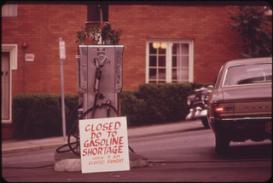This project tells a history of climate and energy politics in the United States between 1979—when the US experienced its second major oil supply crisis in less than a decade—and 1982, when the price of global crude oil collapsed, marking the beginning of the end of the America’s energy insecurities. Based on original archival research, this work in progress examines how policymakers and scientists grappled with the tension between the exigencies of the ongoing energy crises and the need to stave off catastrophic global warming, and considers the extent to which political attachments to a fossil fuel-based energy system historically shaped the conditions of possibility for climate change politics. Drawing equally on the history of science, the history of fossil fuels, and the history of environmental politics, the book follows how climate policy proposals evolved from calls for a federally-funded renewable energy transition and eventual phasing out of fossil fuels to market-based solutions in order to map the shifting terrain of what counted as the political “common sense” when it came to climate and energy policy.

Project
(2024)
Climate Alarmism and the 1979 US Energy Crisis
- Leah Aronowsky
